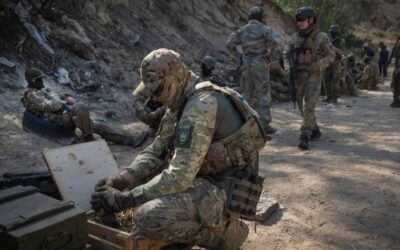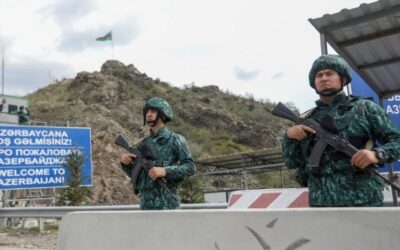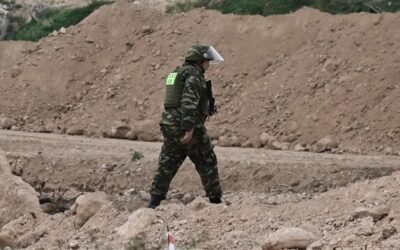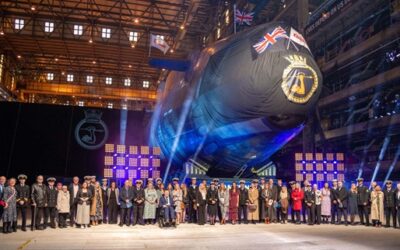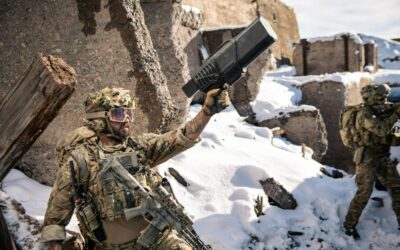US President Joe Biden has signed a bill providing Ukraine with billions of dollars in new aid for its war with Russia, marking a rare…
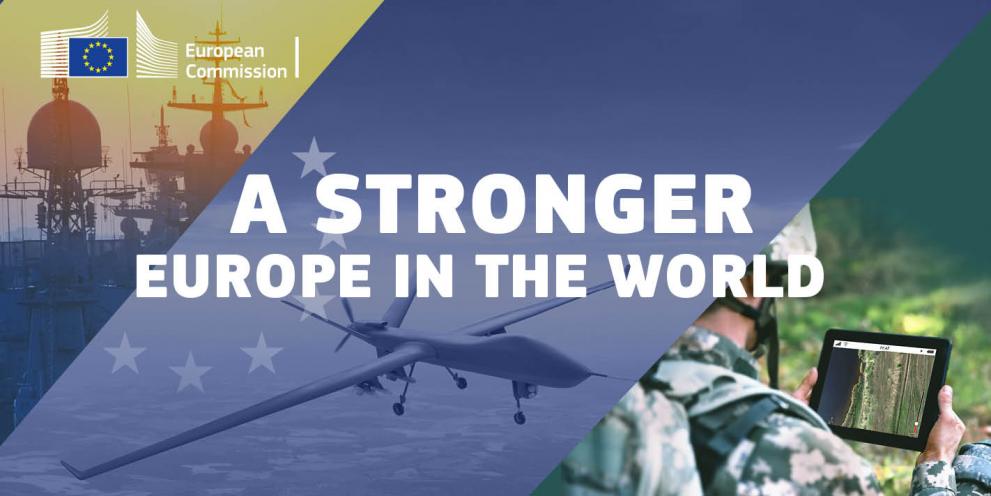
The Council has reached a provisional agreement with the European Parliament on the European defence industry reinforcement through the common procurement act (EDIRPA).
The regulation will incentivise EU member-states to jointly procure weapons, thereby ensuring interoperability, economies of scale and ultimately a strong European defence industry.
According to a relevant announcement, the Council and the European Parliament agreed on an ambitious instrument. Member-states which agree to jointly procure defence products in consortia of at least three countries will be partially reimbursed from the EU budget.
This will benefit member-states and the EU’s respective defence-related technological and industrial base, with special consideration of the involvement of small- and medium-sized enterprises (SMEs), start-ups and mid-caps in the value chain.
Also read: EDA | Tabletop exercise and new study focus on protecting critical energy infrastructure
The agreement reached sets out a number of clear conditions for contractors, sub-contractors and defence products to be eligible, as well as conditions with which projects must comply in order to be eligible for funding:
- As a principle, contractors involved in the common procurement should be established in and have their executive management structures in the EU or an associated country (Iceland, Liechtenstein or Norway).
They should also not be controlled by a non-associated third country, or a derogation has been granted through guarantees from member-states. Under no circumstances can EDIRPA funds be used to source components from countries that do not respect good-neighbourly relations.
- By default, contractors must use facilities and resources that are located in the EU or in an associated third country. The use of non-EU facilities is only allowed where an EU producer has no relevant infrastructure on EU territory.
- Member-states may only procure products that do not carry any restrictions by a non-associated third country limiting their ability to use them.
This rule is not applicable in the case of urgent and critical defence products, provided that they were in use before 24 February 2022 in the majority of the consortium, and the members of the consortium commit to studying the feasibility of replacing those restricted components with restriction-free components of EU origin.
An absolute cap of 15% will allow for an equal distribution of available funds among member-states and across funding priorities.
The provisional agreement must now be endorsed by the Council and the Parliament. It will then be formally adopted by both institutions following legal-linguistic revision. On the Council’s side, the presidency intends to submit the text to EU member-states’ representatives (Coreper) for endorsement as soon as possible.
Also read: EDA | Collaborative Procurement of Ammunition by EU Member-States
READ MORE
United Kingdom | Increase in defence spending
Britain will gradually increase its defence spending to reach 2.5% of GDP by 2030, Prime Minister Rishi Sunak announced…
Armenia – Azerbaijan | Border demarcation is underway
An important step for the diplomatic relations of Armenia and Azerbaijan is underway with the demarcation of their common border.
A reluctant alliance? A different approach to French – Serbian defence relations
It has only been a few months since Croatia started receiving the first of the Rafale fighter jets it ordered from France.
Elliniko | 314 bombs buried at former airport
Over 300 bombs from the Second World War have been found at the old airport of Athens in Elliniko. The news about the said…
Agamemnon | The new Astute-class HMS nuclear submarine of the Royal Navy
The British Royal Navy has named the newly-built Astute-class nuclear-powered submarine HMS Agamemnon. Doing so, the…
NSPA | Awards first C-sUAS multinational contract in NATO’s history
The NATO Support and Procurement Agency (NSPA) has approved the first Counter-small UAS (C-sUAS) procurement framework agreement…
USA | Signs bill on military aid to Ukraine
US President Joe Biden has signed a bill providing Ukraine with billions of dollars in new aid for its war with Russia, marking a rare…
Armenian Genocide Remembrance Day
On this day, 109 years ago, the genocide of the Armenian people by the Ottoman Empire began, with April 24 being the day of…














